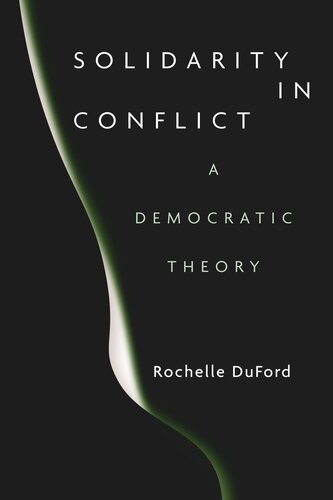

Most ebook files are in PDF format, so you can easily read them using various software such as Foxit Reader or directly on the Google Chrome browser.
Some ebook files are released by publishers in other formats such as .awz, .mobi, .epub, .fb2, etc. You may need to install specific software to read these formats on mobile/PC, such as Calibre.
Please read the tutorial at this link: https://ebookbell.com/faq
We offer FREE conversion to the popular formats you request; however, this may take some time. Therefore, right after payment, please email us, and we will try to provide the service as quickly as possible.
For some exceptional file formats or broken links (if any), please refrain from opening any disputes. Instead, email us first, and we will try to assist within a maximum of 6 hours.
EbookBell Team

5.0
18 reviewsDemocracy has become disentangled from our ordinary lives. Mere cooperation or ethical consumption now often stands in for a robust concept of solidarity that structures the entirety of sociality and forms the basis of democratic culture. How did democracy become something that is done only at ballot boxes and what role can solidarity play in reviving it? In Solidarity in Conflict, Rochelle DuFord presents a theory of solidarity fit for developing democratic life and a complementary theory of democracy that emerges from a society typified by solidarity.
DuFord argues that solidarity is best understood as a set of relations, one agonistic and one antagonistic: the solidarity groups' internal organization and its interactions with the broader world. Such a picture of solidarity develops through careful consideration of the conflicts endemic to social relations and solidarity organizations. Examining men's rights groups, labor organizing's role in recognitional protections for LGBTQ members of society, and the debate over trans inclusion in feminist praxis, DuFord explores how conflict, in these contexts, becomes the locus of solidarity's democratic functions and thereby critiques democratic theorizing for having become either overly idealized or overly focused on building and maintaining stability. Working in the tradition of the Frankfurt School, DuFord makes a provocative case that the conflict generated by solidarity organizations can address a variety of forms of domination, oppression, and exploitation while building a democratic society.